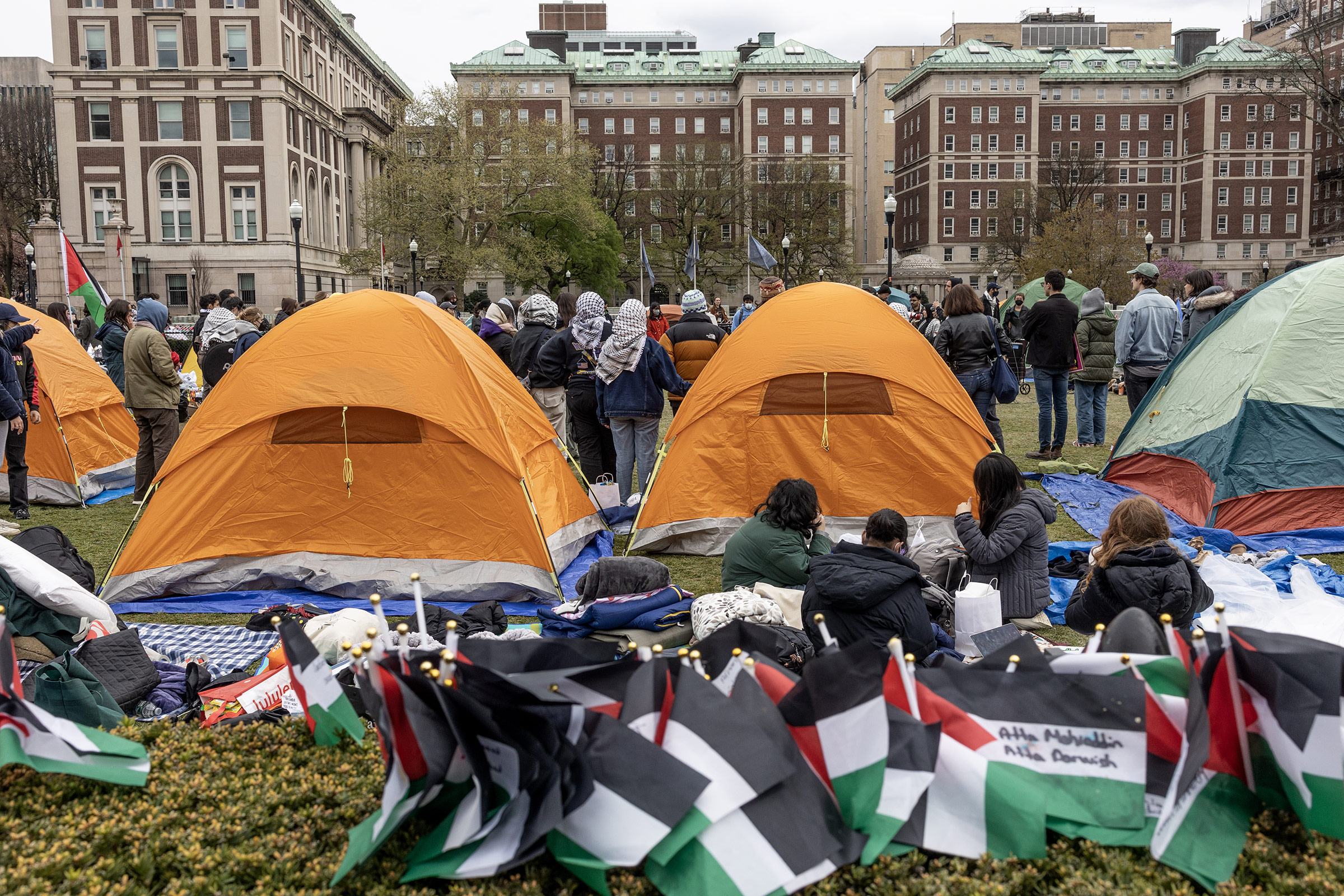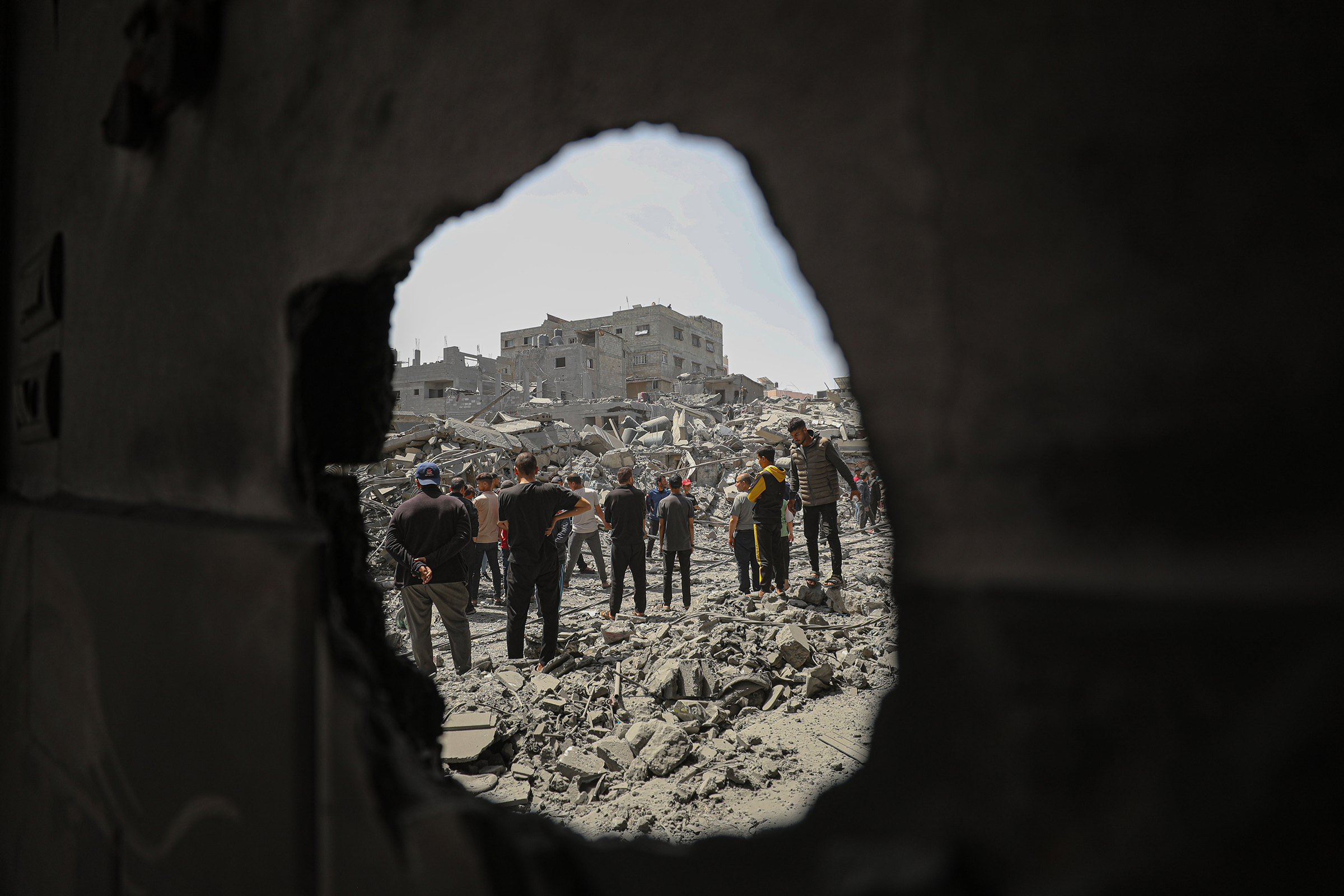“This is the bread of affliction that our ancestors ate in the land of Egypt. All who are hungry should come and eat, anyone who is in need should come and partake of the Pesach sacrifice.” So begins the Ha Lachma Anya, the declaration that is recited at the beginning of the storytelling section of the Passover Seder. These simple words encapsulate Passover’s biggest messages of justice, hospitality, and memory. They have been said by Jews around the world for millennia. But what do they mean this year?
I was raised in a deeply culturally Jewish home. However, my hippie parents practiced every kind of spirituality but Judaism. When I was seven years old, my family celebrated Passover for the first time. I was enthralled by the tiny bowls of salt water, as well as the strange array of bitter and sweet foods. Then my father stood up and began to tell the Passover story with the words: “All who are hungry come and eat.”
At that moment, I fell in love with Judaism. I loved the drama, sure—but also the underlying message of fairness. My parents never celebrated Passover again, but this one time was enough to form a core memory. Now, every year of my adult life, I lead my own seder. I have been proud to hold up a bumpy square of unleavened bread to symbolically welcome the hungry. With joy, I have taught my child that this is the heart of both Passover and Judaism.
Read More: How to Wish Someone a ‘Happy Passover’
This year is different. Right now, over 1 million Palestinians are facing starvation and the U.N. has asserted that the Israeli military is intentionally causing this hunger. In the face of this horror, how can I possibly say the words that so inspired me as a child, or teach them to my own child?
“In every generation,” we read at the beginning of the Passover seder, “one is obligated to see oneself as someone who personally went out of slavery in Egypt.” But what does this mean now? After all, the story of the Exodus is thousands of years old. The Hebrew word for Egypt is “Mitzrayim,” a narrow place, giving us a clue that the story can be understood as a universal parable for the human experience of oppression. In fact, the 19th century mystic Rabbi Nachman of Bretslav once said: “The Exodus from Mitzrayim occurs in every human being, in every era.” In other words, the seder teaches us how to empathize with human struggles for justice and autonomy in every generation.
Since October 7, the Israeli military has killed over 34,000 Palestinians, including more than 13,000 children. At the same time, approximately 19,000 children have been left orphaned. And more than 1,000 children have lost limbs, leading to the largest cohort of child amputees in history. Meanwhile, more than 100 Israeli hostages may still be left in Gaza, leading their family members to protest on the eve of Passover for the government to prioritize ceasefire negotiations that would bring them home safely.
This horror must end.

As Jews, we have experienced genocide, displacement, and ethnic cleansing, and our own traditions teach us how to protect against it. In the Passover story, the Pharaoh orders all Egyptians to kill first-born Hebrew sons, but the Egyptian midwives engage in an act of civil disobedience and refuse these orders. They risk their own lives to save the Jewish babies. It is this powerful act of solidarity that begins to defeat the Pharoah’s rule.
Solidarity is not just a pretty word, but a powerful tool we need to leverage in this time. As Gazan writer Mohammed El-Kurd says: “Gaza cannot fight the empire on its own. Or, to use an embittered proverb my grandmother used to mutter at the evening news, “They asked the Pharaoh, ‘Who made you a pharaoh?’ He replied, ’No one stopped me.’”
Perhaps most importantly, the story of Passover resistance is told through questions, through curiosity. And throughout the seder, many things are done differently than usual to stimulate this curiosity. My ancestors understood that critical thinking is the enemy of dehumanizing atrocities. It’s not accidental that right now, pro-Palestinian protesters asking crucial questions are being silenced at U.S. campuses across the country, most recently at Columbia where administrators suspended protesting on April 19 and had them arrested. Questioning is what we could not do while we were enslaved under Pharaoh. It’s how we imagine freedom.
This year, when my family gathers for Passover, we will not be celebrating as usual. This year, Passover will be about freedom in Palestine. When it comes time for the meal, instead of handing out gefilte fish, I will be offering my guests the Shulchan Orech pledge; this includes asking them to donate the cost of the meal to UNWRA to help feed people in Gaza, reading writing by Gazan Palestinians, and sending letters to President Joe Biden and congress demanding that they take action to fund UNWRA once again and achieve a permanent ceasefire. This would mean an end to U.S. financial support to the Israeli military, and an end to U.S. support for regional war.
We won’t be saying the words “May all who are hungry come and eat” this year. Instead, we will take time to talk about the harsh realities of enforced starvation with even our youngest guests. And, of course, we will make time for lots of questions.
More Must-Reads from TIME
- Cybersecurity Experts Are Sounding the Alarm on DOGE
- Meet the 2025 Women of the Year
- The Harsh Truth About Disability Inclusion
- Why Do More Young Adults Have Cancer?
- Colman Domingo Leads With Radical Love
- How to Get Better at Doing Things Alone
- Michelle Zauner Stares Down the Darkness
Contact us at letters@time.com
